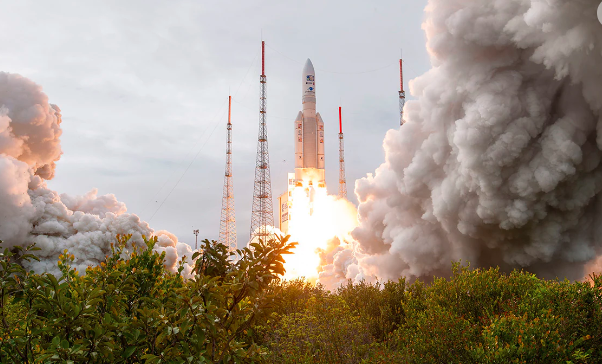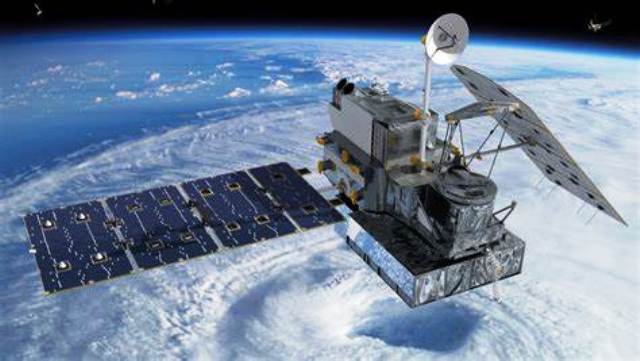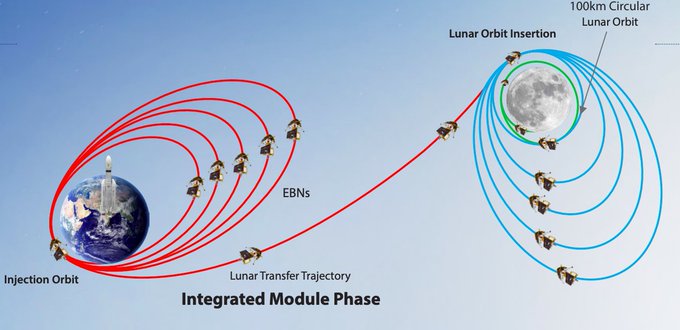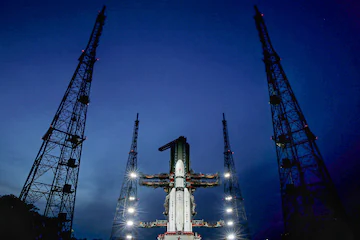Kourou, France: The European Space Agency’s JUICE space probe blasted off Friday on a mission to discover whether Jupiter’s icy moons are capable of hosting extra terrestrial life in their vast, hidden oceans.
The launch on an Ariane 5 rocket from Europe’s spaceport in Kourou, French Guiana came after a previous attempt on Thursday was called off due to the risk of lightning.
Despite cloudy skies, the rocket took off as planned at 09:14 am local time (1214 GMT), with teams on site saying it was on the correct trajectory.
A little under half an hour after lift-off, the uncrewed six-tonne spacecraft is scheduled to separate from the rocket at an altitude of 1,500 kilometres (930 miles). Only then can the launch be declared successful.
The Jupiter Icy Moons Explorer (JUICE) plans to take a long and winding path to the gas giant, which is 628 million kilometres (390 million miles) from Earth.
It will use several gravitational boosts along the way, first by doing a fly-by of Earth and the Moon, then by slingshotting around Venus in 2025 before swinging past Earth again in 2029.
When the probe finally enters Jupiter’s orbit in July 2031, its 10 scientific instruments will analyse the Solar System’s largest planet as well as its three icy moons Europa, Ganymede and Callisto.
The moons were first discovered by astronomer Galileo Galilei more than 400 years ago, but were long ignored as potential candidates for hosting life.
However, the discovery of huge oceans of liquid water — the main ingredient for life as we know it — kilometres beneath their icy shells has made Ganymede and Europa prime candidates to potentially host life in our celestial backyard.
JUICE will focus on Ganymede, the Solar System’s largest moon and the only one that has its own magnetic field, which protects it from radiation.







